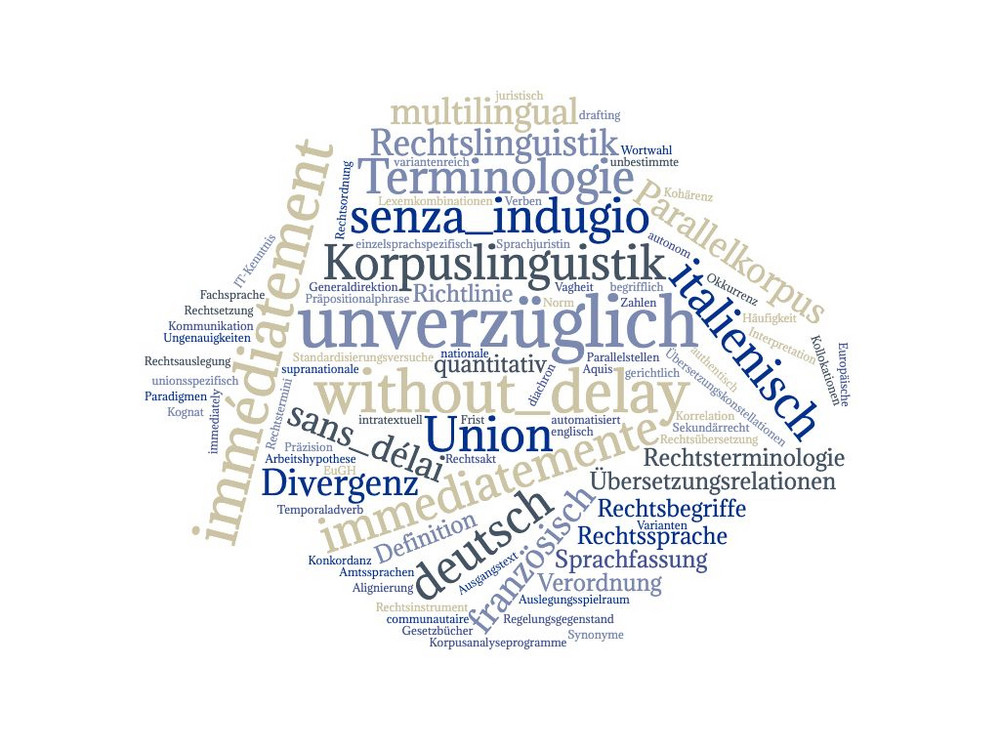Abstract
Legal obligations to act are - at the national level as well as in the context of the European Union - often linked to prescribed periods, within which the action in question must be implemented. If these periods are measured in hours, days or weeks, there is generally little doubt about the time frame available. However, stipulated periods can also be expressed by temporal adverbs or adverbials such as the German adverb unverzüglich where it is far less clear how much time to react they accord to the addressee of the legal norm. Is a reflection period included? May legal advice be sought first? Or does the addressee have to react as soon as s/he knows about the obligation to act?
Such questions already arise within a monolingual national legal system but are even more at issue in the multilingual law of the European Union with its 24 authentic language versions. A glance at several language versions of a EU directive or regulation shows that in the French and Italian versions, there is a wide range of expressions – more than ten in each language – functioning as translation equivalents of unverzüglich.
This paper examines the equivalents of unverzüglich in the French and Italian versions of ten European regulations and directives each. The aim is to show the large variance of translation pairs and to try to find its causes. For this purpose, national legislative texts and the English version of EU legislative acts are taken into account as well. In addition, general language paraphrases and legal definitions provide information on the time span which each of the adverbials expresses, in order to identify appropriate translation pairs. The findings may contribute to avoiding divergences between the language versions of EU legislative acts resulting from the imprudent use of temporal expressions.

This work is licensed under a Creative Commons Attribution-NonCommercial-NoDerivatives 4.0 International License.
Copyright (c) 2020 Zeitschrift für Europäische Rechtslinguistik (ZERL)

